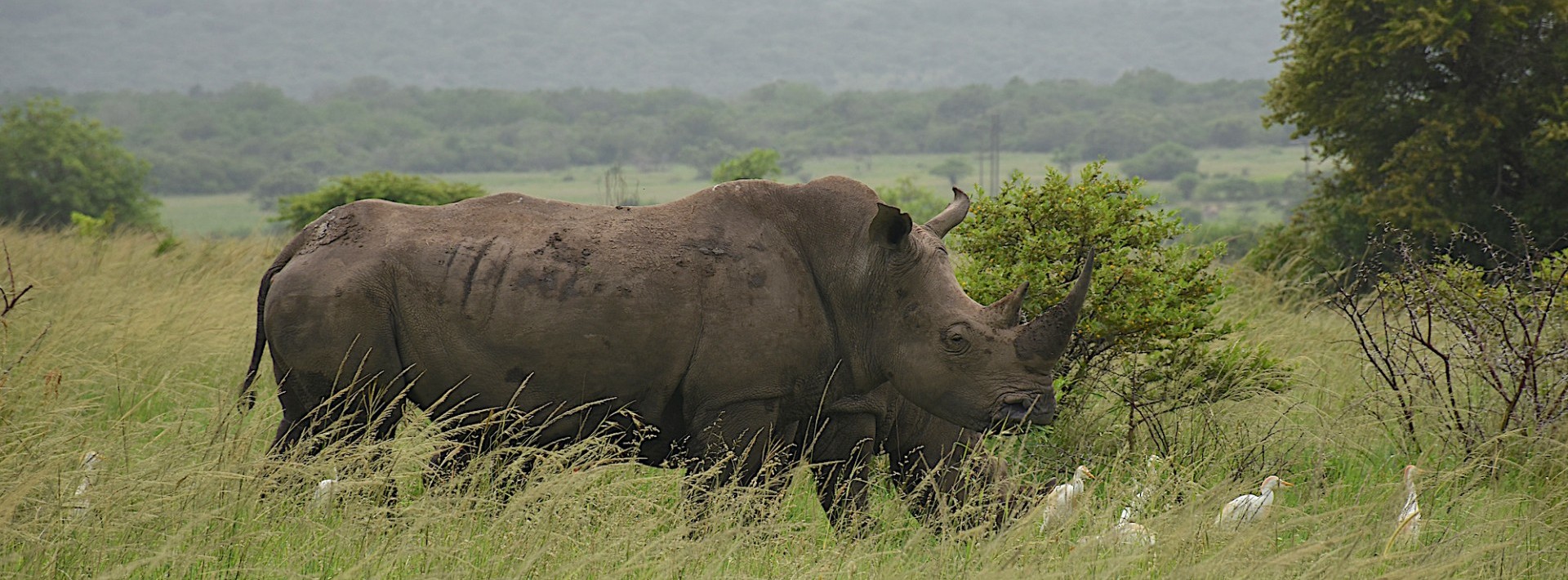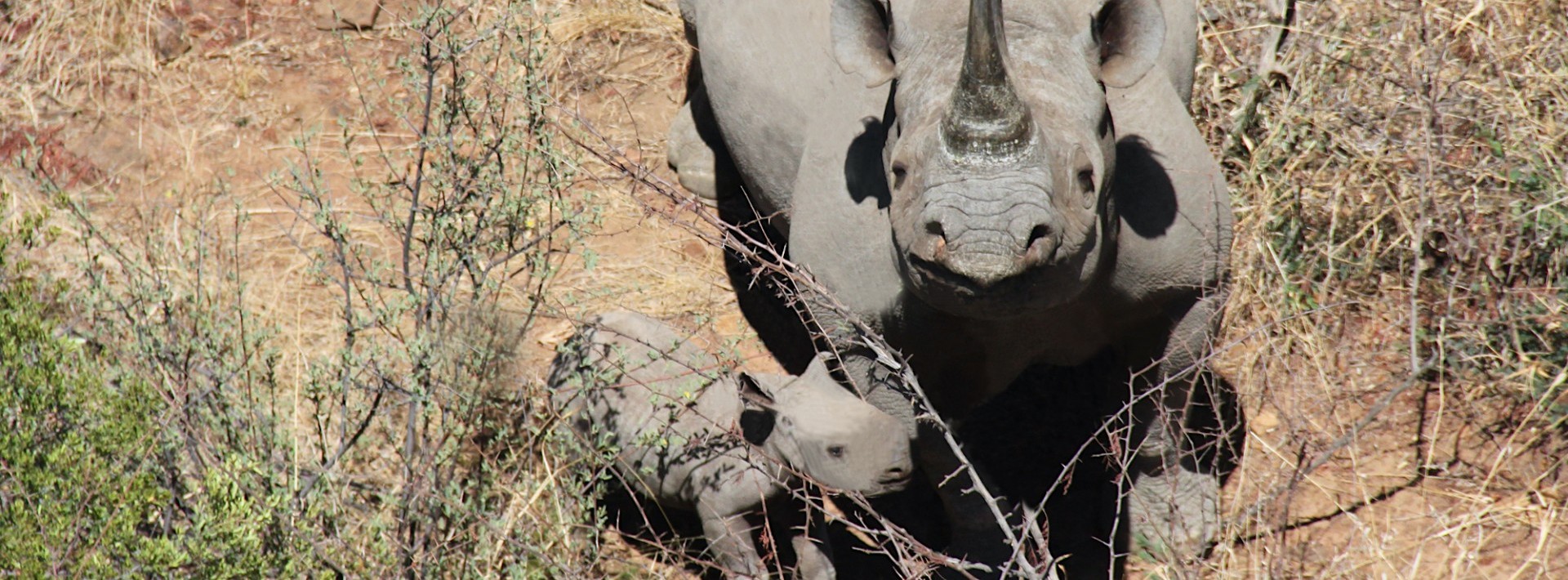In Brief
Conservation Value:
South Africa is home to about 80 percent of the world’s ~28,000 remaining rhinos. Unfortunately, over the last decade poaching has led to rapid declines in the populations of the two species found in the country, the black rhinoceros (Diceros bicornis bicornis and D. bicornis minor) and the white rhinoceros (Ceratotherium simum). Today 93% of the world’s remaining white rhinos and 39% of world’s black rhinos are protected in South Africa. About one quarter of all rhinos are held within private reserves in South Africa.
Threats:
Poaching of both rhino species is widespread across both state and privately-owned reserves in South Africa. The criminal syndicates that poachers deal with are often involved in other large scale transnational criminal activities that exploit gaps in the national law enforcement and criminal justice systems. In the face of continued protection efforts at reserves, the poaching threat evolves to outmaneuver anti-poaching efforts in protected areas.
Actions & Results:
In 2024, 420 rhinos were killed by poachers for their horns that we know of—79 fewer than in 2023. SRP enforcement-related efforts contributed to 49 arrests, with 19 arrests linked to multiple rhino poaching incidents. One suspect was convicted and sentenced to 110 years in prison for rhino poaching in four provinces in South Africa (and was linked to other criminal cases including armed robbery, rape, kidnapping, and escaping from lawful custody). This shows the dangerous criminals that park rangers and security personnel face. In 2024, SRP provided training for responding to poaching incidents at night and K9 training to teach dogs, their handlers, and anti-poaching teams to respond as ‘well-oiled machines’ when facing poaching threats. One of the dogs now fully deployed is Kai, who received months of training thanks to support from the Elliott Family Foundation who are fully supporting this project.
Goal:
To reduce poaching of white and black rhinos in South Africa to advance the long-term survival of these species.
This project is fully funded at present.
(Support is welcome for other projects)
Location:
rhino reserves across South Africa
Project Field Partner:
Our Investment to Date:
Cost to ICFC (2019-2024): CA$687,428 (ongoing in 2025)
This project is funded by the Elliott Family Foundation, to whom we are grateful for making this important work possible.
Gallery
Click to enlarge an image
In More Depth...
International Conservation Fund of Canada Copyright © 2009-2025
Registered Canadian charity # 85247 8189 RR0001




_copy__small.jpeg)
_copy__small.jpg)
_copy__small.jpeg)
